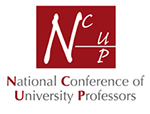What do Professors do in their spare time?
My holiday home is on the beautiful island of Cres in Croatia, and has been my true sanctuary for over 40 years. Recently, however, it has become a target for vandals, so I installed video surveillance, signposted it and recorded four people destroying my garden fence and stealing the 200€ metal gate. This is when I discovered digital forensics.
 |
 |
 |
Video recordings can be used as evidence in the court of law, but there are concerns. Video can invade neighbours’ privacy. Cameras must be positioned to avoid this. Cameras can also be ‘cheated’ by masked perpetrators.
 |
 |
 |
I therefore explored the physical space to find suitable places for the cameras. I put a dummy camera on the barbecue next to the CCTV signs, and the first real camera behind a closed window, leaving the shutters open.
 |
 |
 |
I found a secret place for the second real camera to capture the recorded space so that it is legally acceptable. After the masked perpetrators covered the dummy with a bucket and disabled the first camera by closing the shutters from the outside, they took their masks off and the hidden camera obtained closer recordings. However, surveillance technology does not generally provide good quality recordings especially in outdoor conditions, so such recordings had to be enhanced using various image processing techniques.
 |
 |
 |
Security company, INSIG2, produced a verified master copy of the original, which is now under lock and key, awaiting further processing. With colleagues from Universities of Zagreb, London, Granada and De Montfort, we evaluated facial identification software (observing privacy constraints in scientific research). Using filters, topological space analysis, mathematical equations, we enhanced the images and then wrote a scientific publication (S. Villena, M. Vega, J. Mateos, D. Rosenberg, F. Murtagh, R. Molina, and A.K. Katsaggelos, “Image super-resolution for outdoor digital forensics. Usability and legal aspects”, Elsevier, Computers in Industry, vol. 98, 34-47, June 2018). We are now working on a research proposal so that we can evaluate existing and emerging image-processing techniques to discover in what way and to what extent such techniques can aid facial recognition in police investigations and how image enhancement operations on the original recordings may affect the acceptability of digital evidence in court. Privacy is emerging as a major concern for social science research as it is not yet entirely clear which images can be openly published and which have to be cleared with legal experts and authorities. (The images here have all been cleared!)
I learnt a lot about technology and its impact on law and society and about cognitive processing of digital information. Future research will show what it all means in real life.
Emeritus Professor (iCOM) University of London
